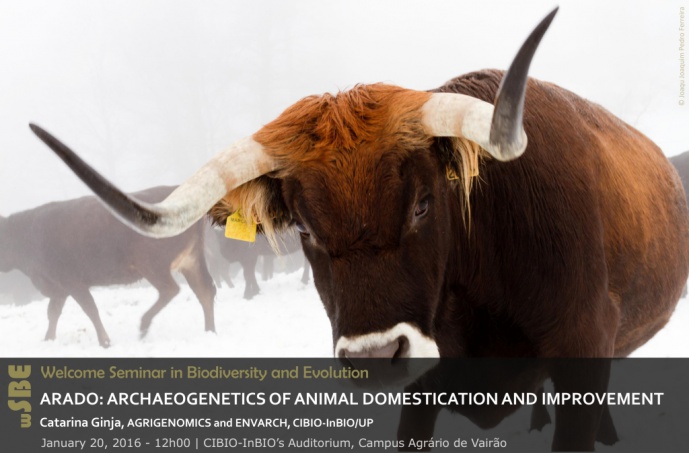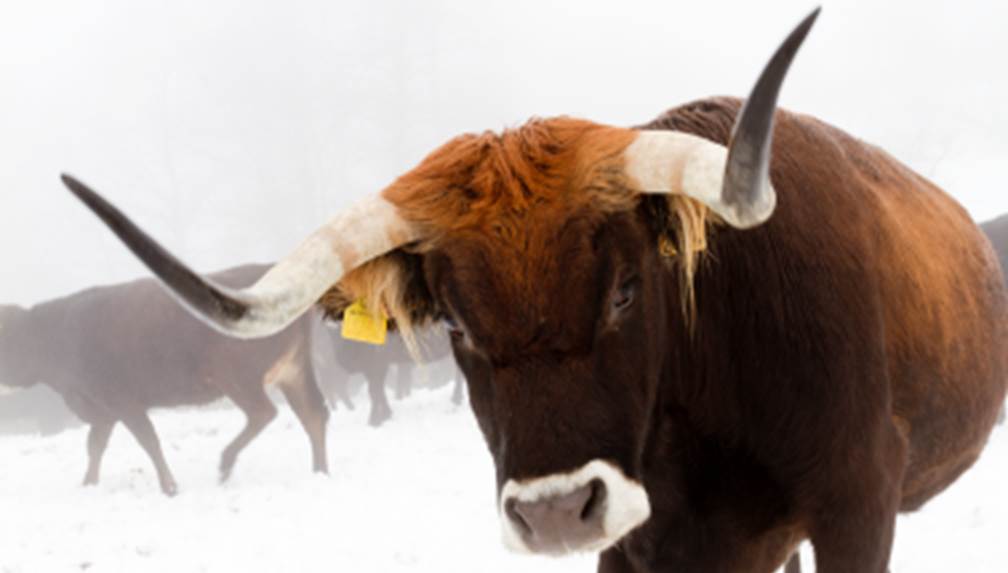ARADO: ARCHAEOGENETICS OF ANIMAL DOMESTICATION AND IMPROVEMENT

WELCOME SEMINAR IN BIODIVERSITY AND EVOLUTION

It is agreed that diachronic (spanning long time scales) ancient DNA studies are required to infer the origins and evolutionary trajectories of domestic animals. In this talk I will present and discuss some of the results of my current Archaeogenetics research on Iberian cattle. My team has been highly successful in recovering DNA from Bos remains collected in Iberia as old as 16,000 years. I will give some examples of how heterochronous genetic data allow for a direct investigation of changes within populations over time, and of the patterns of admixture between wild ancestors and their domestic counterparts. I will briefly present my IF2014 research project – ARADO, which, in the long term, aims to accomplish a phylochronological genetic study to unveil the origins, evolutionary trajectories and modes of improvement of Iberian and North African domestic animal species – cattle, pig and sheep. Studying these key species allows to cover a wide range of processes and to investigate post-domestication changes in inheritable traits. This multidisciplinary research will be further developed in the framework of the recently approved FCT project – ARCHAIC – merging zooarchaeology and genomics – which is critical to capture more accurately the temporal and geographical dimensions of the history that shaped the genetic composition of cattle.
Catarina completed her PhD degree in Animal Breeding and Genetics from Universidade Técnica de Lisboa in 2009, and worked as a Research Assistant at the University of California in Davis (2008-2010). She described a number of novel SNP-STR haplotypes in the cattle Y-chromosome to investigate male-mediated gene flow. Catarina has carried out broad research on the genetic diversity and population structure of Iberian livestock species, by making use of multiple markers, and described the phylogenetic relationships between Iberian breeds and their Creole counterparts of the Americas. In 2010, she was awarded a Marie Curie Fellowship and returned to Portugal to work at Centro de Biologia Ambiental, Universidade de Lisboa, and launched an innovative Archaeogenetics research. Currently, Catarina holds a research contract in the framework of Investigador FCT program to work at CIBIO-InBIO’s AGRIGENOMICS and ENVARCH groups. She also collaborates with national Breeder Associations to define conservation and management measures, and is the chairperson and cattle representative of the FAO/ISAG Committee on Farm Animal Genetic Diversity (since July 2014).
Image credits: Joaquim Pedro Ferreira